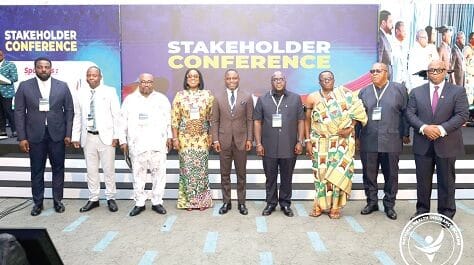Finance Minister Dr Cassiel Ato Forson says government will significantly increase health sector financing in 2026 to strengthen equitable access to quality healthcare, in line with Ghana’s Universal Health Coverage roadmap.
Presenting the 2026 Budget Statement and Economic Policy to Parliament in Accra, he noted that the Ministry of Health had progressed in expanding service delivery and would intensify reforms under the MahamaCares initiative next year.
Get more exclusive breaking news updates on our WhatsApp channel .
He announced that the National Health Insurance Fund, previously capped, had been fully uncapped to provide stable financing for vaccines, essential medical supplies, HIV services and the Free Primary Health Care programme.
A nationwide climate vulnerability assessment had also been completed to guide responses to climate-sensitive diseases such as malaria and cholera, while Infection Prevention and Control had been elevated to a national strategy.
To advance inclusion, a National Health Sector Gender Policy had been launched, ensuring equal access to health services and fair representation in the health workforce. The Ministry had strengthened partnerships with organisations including GAVI, Pfizer, and the UK Trade Envoy, targeting improved health financing, innovation and research.
A National Cleft Centre had been established at the Komfo Anokye Teaching Hospital, with forensic laboratories for DNA and toxicology analysis under development. The National Ambulance Service trained 500 Emergency Medical Technicians and 6,000 youth as first-aid responders to enhance emergency care nationwide.
The Centre for Plant Medicine Research validated four herbal medicines for long-term efficacy, reinforcing Ghana’s leading role in traditional medicine research. Public health systems successfully contained outbreaks of Mpox, meningitis and cholera through strengthened surveillance.
On infrastructure, Dr Forson reported that reconstruction of the La General Hospital was 33 percent complete, with ongoing works at Juaboso, Sandema, and five CHPS compounds. The Kpone Municipal Hospital and the KOFIH Centre were commissioned in 2025.
All outstanding nursing allowances had been paid, and 13,500 nurses had been added to the government payroll. Admission fees for trainee nurses were reduced by half to ease financial burdens. Health training institutions expanded capacity with 930 new residents, 2,104 specialist nurses, and several newly accredited teaching centres.
Regulatory agencies such as the Pharmacy Council and HeFRA advanced digitisation efforts, while 34 health facilities gained SafeCare accreditation. The Ministry identified 232 unlicensed mortuaries, issued provisional licences and trained 800 attendants in safe practices.
He added that the Free Primary Health Care programme would be scaled up in 2026, alongside broader plans to boost local pharmaceutical manufacturing and modernise digital claims and fraud detection systems.
“These reforms are designed to reset, modernise and expand Ghana’s health system as part of the government’s broader agenda for growth, jobs and economic transformation,” Dr Forson said.
















